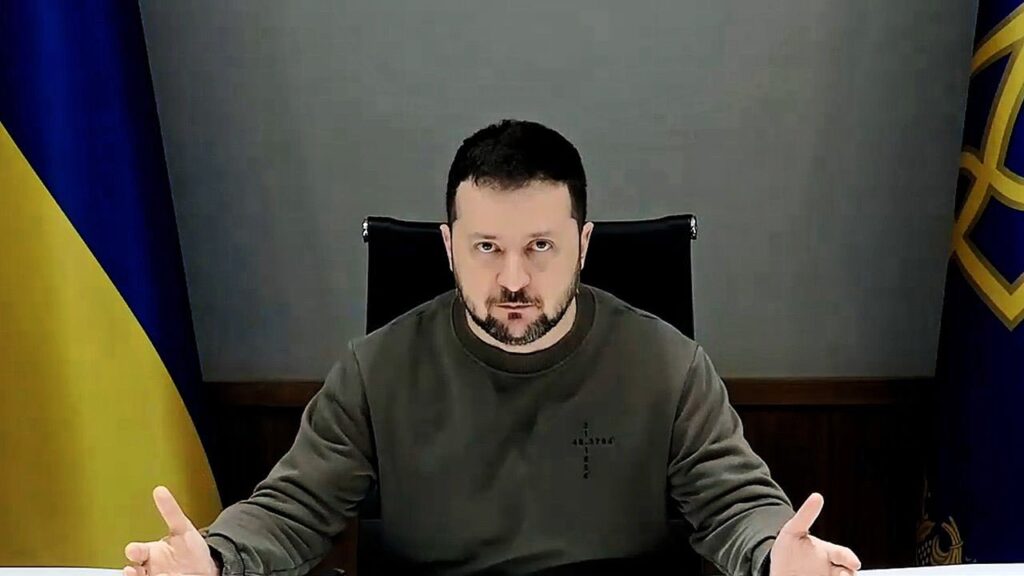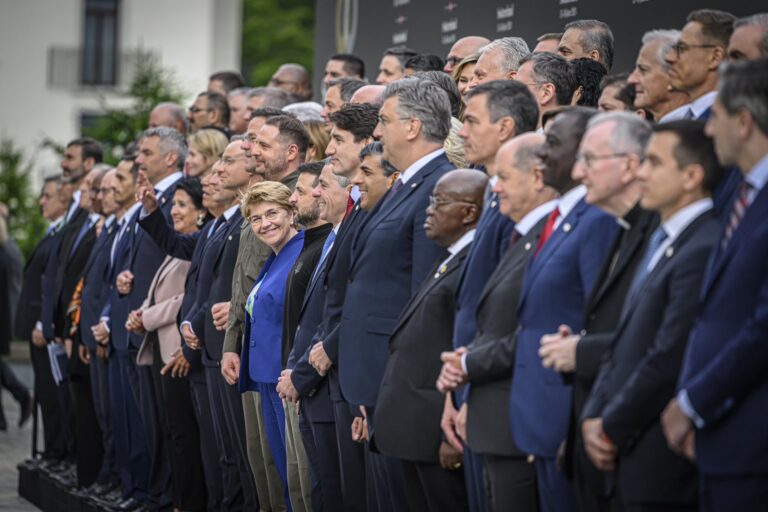The biggest outcome of the gathering in Switzerland was the statement in favor of national sovereignty signed by over 80 countries, which curiously included countries such as Hungary (which generally leaned in favor of pro-Russian narratives) and Israel, which positioned itself as neutral on the issue, but has shifted towards a position more critical of Russia after the latter expressed unequivocal support for Hamas following the October 7 terrorist attacks. Morocco and Azerbaijan both rejected the signing of this statement as did Saudi Arabia, as did India. Azerbaijan remains a part of a non-aligned movement and in the past year has also faced pressure and tensions due to the US non-renewal of a waiver for the 907 amendment which put an end to US military training with its Azerbaijani counterparts. Morocco and Saudi Arabia are more curious examples as both states until recently were considered strongly pro-US, and Morocco was the first Arab country to provide Ukraine with directly military aid. It’s worth noting, however, that in general the US and NATO have failed to secure unequivocal opposition to Russia and China from the Arab world, and moreover China in particular is increasingly playing a larger economic and political role in the region. China has largely aligned with Russia on the issue of sovereignty and although it has attended previous peace summits such as the one in KSA, it has expressed an extremely negative reaction to the latest one.
It’s also worth noting that President Zelensky visited Saudi Arabia immediately before the summit; his meeting with Crown Prince Mohammed bin Salman in Jeddah focused on humanitarian crisis management, and Zelensky also articulated the possibility of another future peace summit in KSA, which at one point expressed interest in mediating the conflict. India was another country that did not sign on to the statement, and has remained neutral in the conflict. India has retained historical defense, political, and economic ties to Russia, also being dependent on Russia for transportation of its goods to the Middle East, after the India-Middle East -Europe economic corridor was disrupted by the ongoing Houthis attacks in the Red Sea. At the same time, India is balancing its foreign policy with pro-Western defense and economic alliances such as being member of the Quad alongside US, Japan, and Australia, and the I2U2 economic group with US, Israel, and UAE.
It’s worth noting however, that Morocco, Azerbaijan, and India have faced challenges to their own national sovereignty and territorial integrity from the Algeria-backed Polisario, the Armenian separatists, and Sikh separatists in Khalistan as well as Pakistan’s claims over Kashmir, respectively. US has formally recognized Morocco’s sovereignty over Moroccan Sahara, but has failed to follow up with the opening of a physical consulate in Dakhla. US-India economic relations are blossoming with India purchasing US weapons for the first time, in addition to other technologies, and with major US big tech corporations making big investments in the country. However, there are political concerns over the US handling of the suspects in the alleged plot to assassinate a Khalistani separatist. While none of these issues have led to any major conflicts with the US, likely a more positive and assertive policy by Washington and its Western allies could have gone far towards getting these countries on board of at least signing this resolution. The way things stand today, however, US foreign policy is all over the place. One of the issues is failure to prioritize adequately. To gain broad international support on a major crisis, US may have to ignore other pressure points from assorted domestic constituencies and vocal activists, which the Biden administration has not been willing to do. Ideological concerns have their time and place, but unfortunately Washington has not been able to temper these leanings with sufficient pragmatism to get enough of its allies on board where it matters. The fact that US is losing so many countries even over a toothless innocuous statement committing the signatories to nothing but generic statement in support of Ukraine’s territorial integrity speaks to the scattered and uneven approach, and inability to deliver a coherent message. This also speaks to a lack of concern over the consequences by the countries who chose not to sign due to their perceived access to other options or the unwillingness for the US to exercise existing leverage effectively.
The result is that while there is still a broad general message of unity over this issue, Russia can exploit the distancing of various individual actors for its own propaganda purposes and to bolster its image. Indeed, the fact that Putin proposed brazen capitulation as his own “peace plan” in light of the summit to which he was not invited, speaks to his intention to continue political maneuvers even as his military strategy is floundering. It’s worth noting that Russia is not in its strongest position in the field in the days of and immediately following the summit. The Russian troops are facing fierce resistance in the Kharkiv region, and there are rumors of the Crimean contingent being prepared for potential evacuation. Ukraine is now utilizing US and other weapons that have finally being delivered, while Russia is reporting significant economic challenges as well as disruptions to the supply chains of its weapons delivery. The US is also looking to tighten up gray zones used to circumvent export-import control. However, Putin does not yet feel himself to be in a desperate position even if he is partly bluffing and putting on a show by making an offer he knows Ukraine will not accept. His message is in part to his own base of support to counter demoralization from the broad consensus reached by the Swiss summit and to project strength and confidence, and in part in appeal to the elements of Western societies that are susceptible to pressure and pro-Russian or defeatist narratives. This is a calculated political, not military move. Putin is hoping that this offer will put these elements on the offensive, basically forcing them to say that Ukraine is being obstructionist and ignoring a very generous offer by Russia, and capitalizing on the concerns about Ukraine’s military mobilization goals, overall numerical disadvantages compared to Russia, and the commitment of the Western political elites. In some ways, this is entirely consistent with Putin’s previous tone, but where before he was pushing nuclear saber-rattling, now he is pushing more the “peace” narrative on his own terms with the hope that in the election year, people around Biden will advise him that this is the best way to salvage US diplomatic legacy, conclude a major crisis, and deprive Trump of victory where he is going around boasting that he will put an end to the Russia-Ukraine war. Of course, Putin is counting on the hopeless naivete of some of the officials, who really think Putin would keep his word. Moreover, it is clear that if Russia retains any presence in Ukraine and if Ukraine does not at least seek a path towards joining NATO and remains partially occupied, Putin can wait out and return with a vengeance at a more opportune moment. Moreover, Putin is counting that a portion of the Western political elites are happy to kick the can down the road so long as they are reelected and is also counting on an additional base of support from the European Parliament where far-right pro-Russian parties made significant gains.

More on this story: Kremlin waging campaign to delegitimize Ukraine




